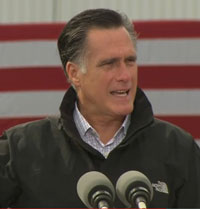 The first news organization in the world, Bloomberg, has been awarded the WindMade certification label for its U.S. operations. WindMade is a global consumer label that identifies companies that use wind energy and other renewables that are certified by UN Global Compact and the World Wildlife Fund (WWF). To be considered, a company must obtain at least 25 percent of its electricity from wind power. Bloomberg obtains 58 percent of its electricity from wind power and 25 percent from biomass energy.
The first news organization in the world, Bloomberg, has been awarded the WindMade certification label for its U.S. operations. WindMade is a global consumer label that identifies companies that use wind energy and other renewables that are certified by UN Global Compact and the World Wildlife Fund (WWF). To be considered, a company must obtain at least 25 percent of its electricity from wind power. Bloomberg obtains 58 percent of its electricity from wind power and 25 percent from biomass energy.
“Not only does the label demonstrate our commitment to renewable energy, it provides consumers with the choice to favor companies and products using wind power,” said Curtis Ravenel, Bloomberg’s Global Head of Sustainability. “As both a Founding Partner and the Official Data Provider for WindMade, receiving the WindMade Certification for our operations was the logical next step for us to show our commitment to this very important standard.”
Henrik Kuffner, CEO of WindMade, added, “We are delighted for Bloomberg. By committing to renewable energy and using the WindMade label, Bloomberg has set a great example that will inspire companies and consumers all over the world.”










